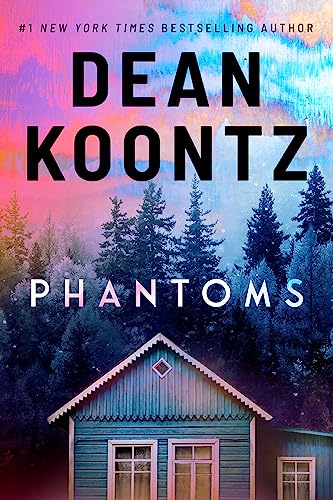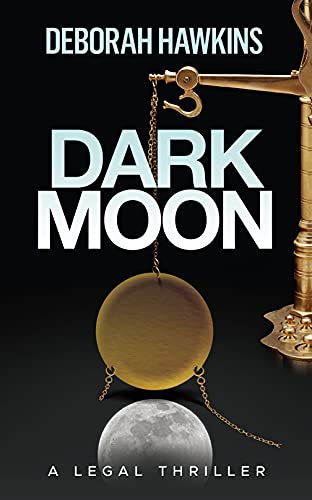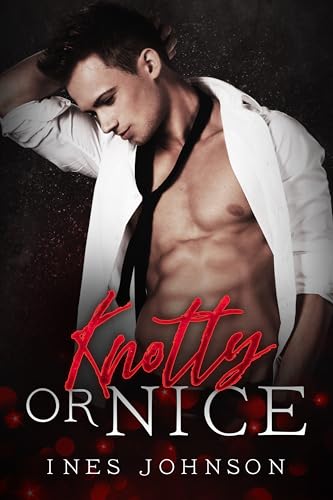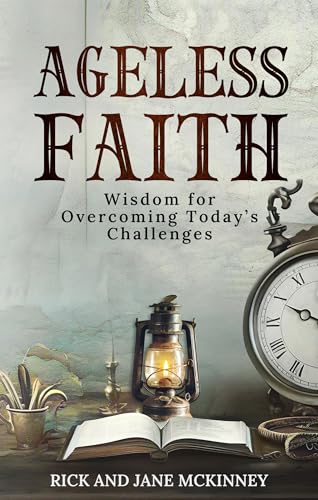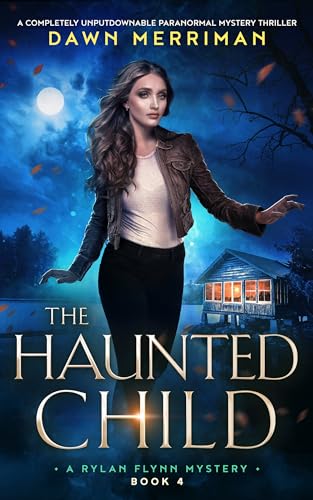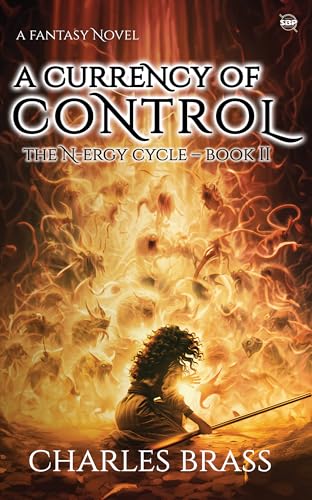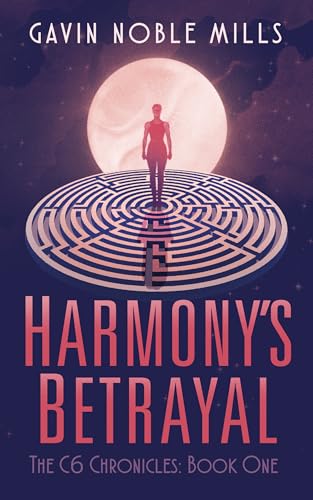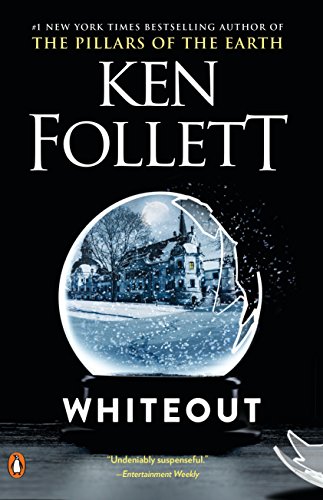in Coming of Age plus Myths & Legends
Living with Your Past Selves (Spell Weaver)
by Bill Hiatt
is haunted by the past but has an enemy very much in the present. Many teenagers struggle to find their identity, but for Taliesin Weaver, that struggle has become life or death–and not just for him. Tal, as he prefers to be called, believes in reincarnation, and with good reason. When he turned 12, his mind was nearly shattered by a flood of memories, memories of his past lives, hundreds of them. Somehow, Tal managed to pull himself together and even to make good use of the lessons learned and skills developed in those previous lives. He even had the ability to work magic–literally–and there was no denying that was cool. No, his life wasn’t perfect, but he was managing.Now, four years later, his best friend, Stan, has begun to suspect his secret, and Stan isn’t the only one. Suddenly, Tal is under attack from a mysterious enemy and under the protection of an equally mysterious friend whose agenda Tal can’t quite figure out. An apparition predicts his death. A shape shifter disguised as Stan attacks him. An old adversary starts acting like a friend. He and some other students get hurled into Annwn (the Otherworld), face Morgan Le Fay, and only just barely get back alive–and that’s just during the first month of school!By now Tal knows he is not the only one who can work magic and certainly not the only one who can remember the past. He realizes there is something that he is not remembering, something that could save his life or end it, some reason for the attacks on him that, as they escalate, threaten not only him but everyone he loves as well. In an effort to save them, he will have to risk not only his life, but even his soul.
5-star praise from Amazon readers:
A Must Read!
“… In so many modern-day fantasy novels the reality of the contemporary setting and the mystery of the imaginary world work at odds…The brilliance of Living With Your Past Selves is that it finds the common threads–the core humanity–in both worlds and uses that as a baseline to tell a fantastic story.”
“This book is full of action, characters you can like…It may have its biggest audience with teens, but it’s a fun read for adults, as well!”
an excerpt from
Living With Your Past Selves
by Bill Hiatt
CHAPTER 1: UNWITTING BETRAYAL
“Stanford, can you hurry it up?” I said with mild irritation. Yeah, his name really was Stanford, though I didn’t usually call him that unless I was annoyed with him. Guess where his parents wanted him to go to school.
“I’m doing this as fast as I can, Taliesin!” he snapped back, his fingers clicking extra hard on the keys. I knew I had pushed too hard. He never called me Taliesin unless he was genuinely mad at me. “And it’s Stan.”
“I know. Sorry. I’m just anxious…”
“You’re always anxious! Maybe if you would learn how to use a computer better yourself, you wouldn’t have to rely on someone as slow as I am.”
“You’re not slow,” I replied, giving him a pat on the shoulder. “Hell, you could probably work faster than the people who designed the computer in the first place.” That wasn’t just empty flattery. Stan knew technology like a time traveler from the future. I, on the other hand, couldn’t quite figure out how to update my Facebook status.
“Okay,” said Stan in a tone that suggested I was not yet quite forgiven, “the virus scan finished, and I made sure all your security software is up-to-date. Your computer is clean for now, but stop clicking on links in email from people you don’t know.”
“Thanks, Stan. My computer would have gotten the digital equivalent of leprosy long ago if you hadn’t been around.” I got a little smile out of Stan then. I made a mental note to be more careful not to call him Stanford. It wasn’t that he was really that temperamental. Well, actually I guessed he was pretty temperamental, but he had good reason. His parents put as much pressure on him as if they believed he was coal and were trying to make a diamond out of him. Whatever he achieved — 4.5 grade point average, getting into AP Physics (normally a senior class) as a high school freshman, creating a successful website design business with several corporate clients — nothing, and I mean nothing, was ever enough. They gave him some praise, yes, but then they started right on pushing him toward the next big achievement.
Add to the parental pressure the fact that Stan and I had known each other practically since birth, but that recently, I had been a constant reminder of what puberty hadn’t yet done for him. We were both sixteen, but I had, as the adults were fond of saying, “shot up” and “filled out,” so that, though I didn’t exactly have the build of a basketball player or a bodybuilder, I could draw the occasional female glance and was sometimes mistaken for eighteen. Stan, by contrast, was a sixteen-year-old who looked thirteen or fourteen. It’s okay to look like a cute little kid when you are a little kid, but not really all that great when you’re sixteen. The fact that I could fend off the bullies that would otherwise have circled Stan like sharks should have been some consolation, but, though we never talked about it, I felt sure Stan didn’t want to be dependent on me — or anyone else — for that kind of protection. He had tried martial arts, where his size wouldn’t have been as much of an obstacle, but he apparently didn’t have the coordination for it, so he ended up dependent on me, whether he wanted to be or not.
“Tal?” asked Stan. I glanced over, and Stan was looking back with an odd expression on his face. He looked like guys our age look when they first realize their parents have left some details out of the sex talk, and they want to ask a buddy but don’t quite know how to bring the subject up without sounding completely clueless. Since I was pretty sure Stan’s parents viewed him as more machine than guy anyway, I could almost see the gaping holes his dad’s talk would have contained — if they had even had the talk at all.
“Yeah?” I replied curtly, mentally bracing myself.
“Can I ask you something?” Oh God, here it comes!
“Sure!” I said with very, very fake cheeriness. “Ask away.”
“You remember a few weeks ago, when you stayed over at my house?” Okay, so I hadn’t seen that one coming.
“Yeah,” I answered, trying to figure out where he was going with this.
“Do you know you talk in your sleep?”
The question hit me like a brick right between the eyes. Hell, more like a whole brick wall. I realized that I had started breathing faster and tried to appear calm.
“I don’t know,” I quipped lamely. “After all, I’m asleep when it happens.”
“Well, you do.” Stan opened his mouth as if to continue, but he didn’t.
“Okay, enough with the suspense.” This time the fake cheer sounded fake even to me. “So what did I say?”
“I didn’t know at first. I couldn’t understand. It wasn’t until later I realized I had left my computer on that night. I have a very sophisticated language recognition program on it, something my uncle, you remember, the Berkeley linguistics professor uncle, sent me as a Bar Mitzvah gift. I also have a really powerful microphone on that computer, and it picked up what you were saying. The language program identified it and tried to translate it.”
And here I was, worrying about what I might have said, when the biggest problem was apparently how I said it.
“The translation part didn’t work,” continued Stan, sounding more and more puzzled. “The software didn’t have a complete dictionary and grammar for the language you were speaking built in. But the program could at least identify the language. It was Welsh.”
“You know, my family is from Wales. My parents don’t speak Welsh, but I do have a few relatives who do. I must have picked up — ”
“No!” shot back Stan, so vehemently that I reflexively pulled away from him. “There has to be more to it than that!” Now it was my turn to be puzzled.
“Why? Usually you are all about the logic, and that is a perfectly logical explanation.”
“Except that the language wasn’t modern Welsh. The software could have translated that. It was medieval Welsh, apparently an early form that is actually closer to the original Celtic. Unless someone in your family has been around for fifteen hundred years, you couldn’t have picked it up from them. There aren’t more than a handful of specialists in the world that can read it, and no one who can speak it fluently. My uncle confirmed that!”
Well, damn your uncle to hell. “Okay, Stan, there must be a glitch in your software.”
“I have double-checked…”
“So, what are you suggesting?” The cheerful tone was really wearing thin, but I didn’t know what else to do at this point. “Demonic possession? I think then I’d be doing Latin backwards, not medieval Welsh. No, maybe I’m a vampire who lived in medieval Wales. Though I’d like to think my abs are really more like a werewolf’s…”
“Don’t make fun of me!” Stan’s retort wasn’t exactly a shout, but it was certainly higher volume than he needed to make his point to someone who was sitting practically right next to him. It was also high pitched enough to be funny, but I suppressed even the faintest hint of a smile. “I’m asking a serious question,” Stan continued, slightly more calmly. You’re my best friend. If you don’t take me seriously, who else is going to?”
Choose your words carefully. “Stan, I’m not making fun of you. You have to admit, though, that the question isn’t exactly scientific, and you are always scientific in the way you analyze situations. Maybe the problem is that I have no idea where you’re going with this.”
Stan leaned closer and almost whispered, a sharp contrast to his previous shout. “The ancient Celts believed in reincarnation.”
The implicit question hung in the air for a while. I’m ashamed to admit that for a split second my old battle training almost took over. Yes, for one bloody, irrational moment I thought about how many times I had killed before, how easy it would be to kill Stan and dispose of the body, all before my parents got home. Then I got a grip on myself. All of that killing was so long ago. I hadn’t killed in this life, and I didn’t want to. Besides, I was an only child, and Stan was the closest thing I had to a brother, as well as my truest friend. He was almost the last person I would ever want hurt, let alone kill. However, the fact that I was shocked enough to think such a dark thought for even a fraction of a second gives you some idea of how I dreaded what I knew was about to happen.
Stan, little human supercomputer Stan, had figured out my situation, as unscientific as it was.
Yeah, I know, unbelievable — but true, nonetheless. And now my best friend was going to hound me about it like the Gwyllgi, the black hound of destiny from the tales of my people.
Why the idea of my best friend knowing my secret horrified me so much I couldn’t quite say, but ever since I had known the truth myself, I had also known that if anyone else shared that knowledge, the consequences could be unimaginably horrible. It was as if I had forgotten some tynged (“binding spell” is the closest I can come in English) that required me to keep the secret, on pain of death or worse. My heart grew colder than the fog sweeping in from the sea on a dismal night. I could almost feel the sharp fangs of the Gwyllgi biting through my chest.
The question was, what could I do about the situation now? Was it already too late? Was the cliché cat out of its bag already, and was it ready to claw out my eyes?
“Reincarnation?” I finally managed. “You have got to be kidding me.”
“Think about it. I didn’t notice it when we were kids, but recently you have done a lot of things that can’t really be explained any other way.”
“Such as?” I asked, trying to sound contemptuous about the whole idea but sounding shaky instead.
“Well, there’s that,” said Stan smugly, indicating my harp with a sweeping gesture. “You played the guitar for years, but you never touched a harp, and out of nowhere you con your parents into getting you one, you take a few lessons, and suddenly you’re a concert quality harpist? I don’t buy that for a minute. But if you had played the harp in a previous life, your sudden ability makes sense. You know literature better than I do, but didn’t Arthur Conan Doyle write a line for Sherlock Holmes something like, ‘When you have eliminated the impossible, whatever remains, however improbable, must be the truth’?”
“Mastering the harp took more work than you think.”
“No, it didn’t. We hang out all the time, Tal. How much time did you spend practicing the harp? Enough for appearance’s sake, I guess, but not enough to really learn it from scratch — and you know that as well as I do.”
“Okay, so I’m a prodigy. Mozart was composing music when he was a toddler.”
“Exactly, he didn’t start when he was twelve or so. Statistically, if you are a prodigy, you are an awfully late-blooming one.” Well, he had me there.
“I still play guitar, though.”
Stan raised an eyebrow at that. “Yeah, in a garage band that should never have gotten out of the garage.”
“Hey!”
“Don’t pretend to be offended. Even you used to say you guys sucked. Then, all of a sudden, you become the Bards, and you are actually good, pretty much overnight.”
“We aren’t that good.”
“Horse manure.” That was Stan’s idea of cursing. “You played at the Troubadour last summer. I was there, remember.” Yeah, I’d had to do some heavy lobbying with Stan’s parents to let him go to LA for a weekend with a band. Now I wished I hadn’t.
“And then there is that.” Stan pointed to my fencing foils, leaning again the wall in their carrying bag. “You were in AYSO soccer for years, all set to be starting varsity in high school — and then you just dropped it, and started fencing instead. And you were good at fencing right away, just like the harp. I’ve been to some of your competitions. I’ve seen you beat people who have been fencing for years. I heard my parents talking about it. They don’t understand why you aren’t trying to do what it takes to get on the Olympic team. Tal, the Olympic team! Four years ago, you didn’t even know what a fencing foil was. Then there is your sudden interest in medieval reenactments.” That last I used as a way to camouflage my possession of some real weapons, but I had to admit I had kind of become the star of the show — I should have been more careful.
“And just look around the room, Tal.” I did, and again, he had a point. How could I have been so sloppy? I should have kept up the typical teenage boy decor: sports poster; maybe a band poster or two; images of strikingly beautiful, if unattainable, models and celebrities; something that would have made me seem more normal. Instead I had Celtic crosses, Welsh flags, mythologically themed art reproductions. The room was altogether too medieval, not to mention too green, to seem anything like the typical teenager’s lair. In retrospect, I was surprised Stan hadn’t started asking questions much sooner.
Stan fell silent, clearly waiting for a response. I couldn’t even begin to think of a suitable one. How could I possibly explain all the changes in my life, without letting him know who — and what — I really was?
So instead I walked over and started to play the harp and sing — in Welsh. Nothing much to lose at this point.
Stan was dumbfounded…during the brief time he remained awake. One trick I had mastered long ago, at least 1500 years ago, give or take a century, was using my music to charm someone to sleep. Needed that one for my parents more than once, I can tell you. Anyway, Stan looked as if he were trying to fight the effect, but if so he only lasted a few seconds; then he slouched over in his chair, nearly falling off. My reflexes were good enough for me to catch him in time and lay him gently on my bed. Whenever I used that kind of magic on someone, they never seemed to remember it afterward, so at least I hadn’t made the situation any worse.
“Yes, Stan, I should have known I couldn’t fool you,” I whispered to him. “I can’t just tell you the truth, or I would have, believe me. What can I say? My parents don’t know it, but they named me Taliesin for a reason.” Stan twitched almost as if he had heard me, but I knew he was under too deeply for that.
Not knowing what to do with Stan, or even if anything I did with him would help at this point, I listened to the slow, steady sound of his breathing and let my mind wander back over the last few years.
I remembered vividly how much I had resented my parents for naming me Taliesin, not exactly the most masculine sounding choice any way you look at it. Maybe in Wales such a name could have worked, but in the United States? Ridiculous! Despite the name, though, I had been a fairly normal kid, good at soccer, so-so at school, someone who played my rock music louder than my parents thought necessary, and then…
And then puberty had hit, and when I say “hit,” I mean “HIT” — like a sledge hammer to the skull, smashing my mind into hundreds, maybe even thousands, of little, bloody, screaming fragments. The worst part was not being able to tell anyone, not even my parents. I kept imagining spending the rest of my life in a mental institution, and the Hollywood images stirred around by my pre-teen imagination could conjure up a fairly lurid picture of what mental institutions were like. Whatever was happening inside me made me physically ill, like the sharp edges of my shattered mind were twisting around and ripping up my innards. I was even in the hospital for a few weeks. It wasn’t a mental hospital, but I figured it was only a matter of time until I ended up in one.
Then, just as abruptly as my mind had come apart, it had snapped back together like someone assembling a psychic jigsaw puzzle. Sure, everything wasn’t in exactly the same place, and there were days when I felt like pieces were missing, but at least I could function. You see, nothing was actually broken in the first place; it just took my adolescent mind a while to process what was happening to it.
And what was happening? People associate a belief in reincarnation mostly with eastern religions, but, just as Stan had said, the ancient Celts had a similar belief — and, if my experience was any indication, they were right. Sometimes people have fleeting memories of previous lives, but for the most part they live in blissful ignorance of who they might have been and what they might have done. I didn’t know why, but suddenly the dam that separated my past lives from my current one had dissolved, drowning me in a tidal wave, thousands of years of memories and of radically varying personalities all pouring over me, giving me no room to breathe. I might have lost myself; I might have washed up on shore, broken and rotting, and ended up in the mental institution I so dreaded. Somehow I had hung on. Eventually my current life personality reasserted its dominance, though flavored by my newly remembered past, as my changing interests indicated.
My parents told me afterward that Stan had been at the hospital almost as much as they had, that he often held my hand and talked to me, that almost as often he cried when he thought nobody was looking. I often wondered if his friendship had somehow anchored me, saved me.
And yet here I was, standing by him as he slept, with some of my ancient and medieval past personas wanting to throw him out the window, smother him with a pillow, run him through with a sword — anything to mend the tynged and save me from that uncertain something waiting to swallow me up. I didn’t really blame them in a way — some of them came from much more savage times in which moral dilemmas did not interfere with survival. Fortunately, they were just echoes of the past; I was the one who was in control, and if I had to face death or worse so Stan could live, then I would. Easy to say, I know, but at the time I really believed it. My past lives gave me a wild side I sometimes had to restrain, but they also gave me wisdom “beyond my years,” you might say.
That did, however, leave the question of what to do with Stan. I could do more than charm him to sleep. I could, for example, make him forget, but that process posed more risks. I would have trouble wiping just the memories that threatened me, and, looking down at him and thinking about his brilliant mind, I just couldn’t make myself take the chance. Besides, unless I erased much more, and took an even bigger risk, he would just come to the same conclusion again at some point in the near future. Instead of erasing his memories, I settled for a temporary fix and made him think he had dreamed the conversation with me. When he awoke, he would be a little groggy, not prone to act out the discussion he thought he had dreamed. I would walk him home — he lived just down the block — and I would buy myself a few days perhaps, to figure out what to do.
“Yes, Stan,” I whispered to him again. “You were right. I am Taliesin Weaver right now, but I was also the Taliesin who journeyed with Arthur to Annwn and then wrote about the journey later. And I was the more ‘historical’ Taliesin who was the court poet to King Urien of Rheged. I am betting you looked him up in Wikipedia and would have asked me about him had I given you half a chance. I have been other Taliesins as well, and many, many other people. The best part of all that, though it almost crushed me, is I can access any memory, use any skill from any of them; at least I can if I concentrate hard enough. Why that is true, what the purpose of all of it is, I really, really, wish we could find out together, but that, my friend, is a journey I am going to have to take alone.”
With that I brought him back to semi-wakefulness, just as I had planned, walked him home to make sure he got there in one piece, went back to my place, had the usual tense dinner with my parents, played the harp a little, and then crawled into bed, though naturally I couldn’t sleep.
Around midnight I heard howling that would be enough to freeze anyone’s blood, let alone someone like me who knew what it meant. The howl was followed soon enough by harsh scratching at the windows and by a moaning lament in, you guessed it, Welsh.
Over breakfast, my parents speculated about what could have caused all the racket last night, but I already knew.
We had heard the Gwrach y Rhibyn, the Welsh Banshee. When it spoke, it spoke to the relatives of the one who was going to die, wording its lament from their point of view.
Last night it spoke to my parents. It repeated, “Oh, my son!” to them over and over.
Now what Stan did or didn’t know became the least of my worries.
The tynged had been broken, and the price for its breaking was death. Mine.
CHAPTER 2: COMING STORM
“Tal, your oatmeal is getting cold,” my mom said worriedly. She always sounded worried these days, actually ever since I had been in the hospital. She was looking more tired than usual though, I suppose because the Gwrach y Rhibyn had kept her up.
“Sorry, I guess I’m just a little preoccupied today.” My mother smiled, just a bit, but she kept those overly inquisitive eyes on me. Most of the time she acted as if she thought I would break at any moment. Hell, maybe she was right.
“The soccer coach tells me the Simpson boy is moving out of town, so there’ll be an opening in varsity this season. I think he’d like to see you go out for the team.” Where my mom’s blue eyes were inquisitive, my dad’s gray ones were more like inquisitorial as they peered at me, the lower part of his face covered by the morning newspaper.
“Dad, you know I don’t have time.”
“But you used to love soccer!” The disappointed edge in his voice felt like a knife, cutting me yet again. Yeah, we had had similar conversations before.
“Junior year is especially important for college,” I replied, remembering previous conversations I had had with the college counselor at school. “I have to do well in my classes, and colleges want to see sustained commitment to a few extracurriculars, not a lot of jumping around. If I drop fencing, or music, or poetry for soccer, it just won’t look good.”
“It’s good you have a sport,” said my dad grudgingly. I guess he was having a good day if he was conceding that fencing was a sport. “But fencing is so, so…” he struggled for some politically correct word and failed to find one.
I knew what he wanted to say was “fencing is so gay,” but those words would never come out of his lips. He was always better at picking away at the edges of problems rather than facing them directly. The truth was he had feared I was gay ever since my collapse four years ago. He might have swallowed fencing; I think it was the harp playing that really horrified him, but the poetry writing didn’t help. I knew that in some deeply hidden part of his mind, he was just waiting for me to announce I was taking up ballet. Honestly, the man would have been secretly delighted if he’d caught me in bed with a girl. Even my getting a girl pregnant would probably have been better for him than the gray dread he must have felt every time he contemplated what for him was unspeakable.
Okay, I know you are dying to ask, so for the record, I’m not gay — not that it should matter. The ancient Celts really had the right idea; if a man were brave in battle and a dutiful subject of his king, people didn’t worry too much about whom he was in bed with, as long as it wasn’t another man’s wife.
“Dad, you know some of the football fathers would feel the same way about soccer that you feel about fencing.”
“I don’t feel anything about fencing,” said my father defensively, burying himself in his newspaper.
I might have had the accumulated knowledge of millenniums of incarnations, but in more ways than you would think, I was a teenager. Yeah, I wanted to rebel against my parents — but I had done that in so many subtle ways already that it was getting old. Really, I wanted my dad to be proud of me, and even though I had some prestigious colleges already interested in me, I knew he just couldn’t feel proud of who I was now. He wanted the little boy again. He wanted me to play soccer and be carefree, like I was before the hospital. But of course, that little boy didn’t have the weight of thousands of years bearing down on him. I would never be that little boy; I didn’t even remember what it was like to be him. I wanted to tell my dad that the boy was dead, but that I was alive, and I needed him — I needed him to love me, not some memory that hung between us like a pale, dull fog. However, those words would never escape my lips.
I guess in that way my dad and I were not that different.
I looked at my mother and father then, and sighed. My mother had once been beautiful, my father had once been handsome, and they were still sometimes described as “a handsome couple,” but they were both graying and sagging a bit, and their faces where lined with more worry than the last four years should probably have given them. But of course, I reflected, it wasn’t really the last four years that had done that, but me.
Well, I decided that was enough guilt-tripping for one day. I finished my breakfast as fast as I could and managed to get out of the house with minimal fussing on my mom’s part, though I did end up with a jacket I didn’t really think I needed.
However, once outside I had to admit, though grudgingly, that she might have had a point. We were only a few blocks from the beach, so marine layer was not uncommon, especially in the morning. Still, mid-August tended to be warmer than this, if not exactly on a par with “Indian summer” in areas further inland. Despite myself, I shivered a little bit as I finished zipping my jacket. And talk about fog! It wasn’t perhaps quite “John Carpenter” thick, but I really couldn’t see more than a few feet in front of me.
The situation was made more uncomfortable by the fact that I had a backpack on my back, my guitar case hanging from my left shoulder, and my fencing bag hanging from my right. Carrying all that was a hassle, but I didn’t want to be caught unprepared. I needed the contents of the backpack for school, and, given the ominous signs last night, I didn’t want to be too far from a musical instrument. The harp would have been my first choice, but it was too large for me to drag along with me. As for the fencing equipment, let’s just say one of the foils only appeared to be a foil; it was actually a little something special I might need at some point. I might be doomed, but if death came for me, I intended to die fighting.
Unless of course something attacked me right now, in which case I was so awkwardly weighted I could be knocked over pretty easily.
I stumbled a few steps and glanced back at my house, partly to make sure Mom wasn’t watching. If she was, she wasn’t going to be seeing much. That Spanish colonial revival architecture-on-steroids monolith that we called home was already little more than a large grayish white blur, the fog washing out the roof tiles to vague brown smudges, the landscaping to greenish black swirls.
I staggered on down the street, passing more Spanish colonials. Even though the neighborhood, and indeed most of the town, had been the product of a single development, the architects had gone to considerable lengths to vary the basic pattern, so that no two houses were exactly alike, but in this fog, they were just a row of more or less identical grayish white blurs. I had to really concentrate to keep track of which one was Stan’s. It would be mildly embarrassing to knock on the wrong door in a neighborhood where I had lived basically my whole life.
Luckily, I got the right door, and Stan answered it. His parents were always superficially nice to me, but his mother in particular seemed suspicious of me, as if I had some evil plan to recruit Stan as a roadie for my band, introduce him to drugs, and just generally mess with his destiny: graduate high school with honors, graduate Stanford with honors, become a famous scientist, win a Nobel prize, the works. For the record, I wasn’t even sure what use a roadie would be for such a small band, and I didn’t do drugs, but one thing my parents had certainly taught me was that parental fears aren’t always rational.
I said hello to him and asked if he was ready. He was — and probably had been for an hour, if only to keep his mother from fretting over him — so we got as quick a start as we could, given my load. I wasn’t eager to talk to him, though, after what had happened last night, so I whistled instead, and he didn’t interrupt. In fact, I was using the whistling to instill in him the feeling that the silence shouldn’t be broken. Probably the damage was already done anyway, and I could just as well have shouted my secret in the center of the high school quad, but I decided to adopt a “wait and see” attitude.
And so we walked along slowly, the silence broken only by our footsteps and my soft whistling, and I thought about Santa Brígida, a town that was both home and a never ending puzzle to me.
If you have ever passed through Santa Barbara, you might know about where my “city” (really a town) is. It’s just a little east of Santa Barbara on the coast, between Coast Village and Summerland. But the best way to describe Santa Brígida is in reference to Montecito, which is just north of Coast Village, and so northwest of us. For lack of a better way of putting it, Santa Brígida is “wannabe Montecito.” In fact, but for some legal snarls, the town name would have been something with Montecito in it. While Montecito traces its origins to the late 1700s, Santa Brígida, despite the historic sounding name, only goes back to 1996 — coincidentally, the same year I was born. Montecito is an enclave of prestige and wealth; Santa Brígida is an enclave of people who aren’t quite as wealthy as those in Montecito but who would very much like to look like they are. Both communities are demographically very heavy with executives, entrepreneurs, and various professionals, though the average income in Montecito is considerably higher. Undaunted by that difference, the developers did their best to imply that home buyers would get the “Montecito experience” (whatever the hell that is) at a lower cost.
So why did the town leave me puzzled? It hadn’t until my hospital stay. Afterward, the place always seemed just a little off, somehow, like everyone was trying too hard. The very houses themselves seemed to groan with the weight of the expectations placed upon them, if not the weight of the extra stories — I learned in architecture class last year that the Spanish colonial revival style typically only had one story, but in Santa Brígida, most of them had two or more. The square footage also tended to be big for residential properties in the area — except, of course, some of the homes in Montecito. To complete the intended effect, the developers paid extra to get fully grown trees, including the enormous palm trees on the street Stan and I were walking down, trees that, when enshrouded by fog like today’s, looked even more out of place than usual.
How all this worked out financially was another puzzle. How could the developers have poured such money into extras, put the houses on such large lots, and still been able to sell the houses at reasonable rates? Rumor had it they got the land “dirt cheap,” if you will pardon the cliché. The way my luck was running, the whole place would probably turn out to be built on a toxic waste dump or Native American burial ground, with ecological and/or karmic consequences one could readily imagine.
As we were nearing the school, Stan mumbled something to me. I was deep enough in my own thoughts that I answered without thinking.
“I knew it!” Stan practically yelled. He surprised me so much I almost lost my balance.
“Stan, what the hell?”
“Tal,” he said, slowly and deliberately, “I just asked you a question — in Hebrew — and you answered it. In Hebrew.”
Well, that was a problem.
I guess I should mention that Welsh wasn’t the only language I wasn’t supposed to know in this life but did. There was a poem in “The Tale of Taliesin” that was sometimes attributed to me, though I couldn’t remember writing it. A lot of it was pretentious nonsense suggesting that the bard Taliesin (whom I thought of as Taliesin 1) was with God at the creation and would be in the world until the Day of Judgment. Hogwash, probably, but there were specific verses talking about being with King David when Absalom was slain and witnessing other events in ancient Israel that stirred dim memories in me, as did the references in the same work to Alexander the Great. In any case, my ability with both Hebrew and Greek was second only to my ability with Welsh — though right then, I was wishing that was not the case.
“I must have picked up enough Hebrew from you…”
“Tal, the only time you ever heard Hebrew was at my Bar Mitzvah, and you weren’t exactly quoting my Torah portion just now.”
The fog was still thick, but I could hear voices up ahead. We were definitely getting close to school. If I wasn’t careful, Stan would out me in front of everyone. The tynged aside, I wasn’t sure how I felt about some public revelation of my previous lives, which at best would make Stan look stupid, at worst make me look like some kind of freak.
“Anyway, when we started to really talk last night, you put me to sleep. I know you did.”
The danger level just spiraled off into the stratosphere. There was no way, absolutely none, that Stan should’ve remembered our conversation as anything but a dream — and there was really no way he should’ve remembered my putting him to sleep. Over the last four years, I had had to manipulate my parents from time to time. I’m not proud of that, but I did it very sparingly, and only when necessary. (I know that sounds at best self-serving coming out of an adolescent mouth. Feel free to picture me as a wise old man with a white beard — I’ve been one quite often in the past — if that helps my credibility any.) Anyway, I had done the same with others as well. No one in all that time had ever resisted me or realized that I had done something to them. No one. And yet now Stan was talking as if he were somehow immune to me. Well, he hadn’t been last night, so what had changed?
I really had no time to ponder that question. Shadowy figures in the fog ahead of us had to be other students. We were very, very near the front of the school.
I did my best work with both voice and instrument, but I couldn’t exactly whip out my guitar at this point, or start singing, for that matter. In a pinch, I had sometimes made my speaking voice alone work, if I put enough “oomph” into it. Welsh would have been best for that, but I couldn’t risk that either, so I settled for English.
“Stan,” I commanded in a harsh whisper, “you will be unable to speak of this until we are alone.” I could feel the power flowing through my words. This maneuver should be enough to buy me some time, and perhaps a little privacy.
Stan stopped dead in his tracks.
“What are you trying to do, Tal, cast a spell on me?” That was Stan’s serious tone, not his joking one. Odd as it was to hear the campus’ biggest science nerd talking about spells, there was no question. He was aware of what I was doing, and he was completely unaffected by it.
I was still trying to frame a response when the car hit me.
… Continued…
Download the entire book now to continue reading on Kindle!
(A Spell Weaver Novel)
4.8 stars – 9 reviews
Just 99 cents!

